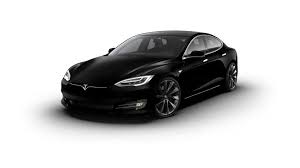Over the last 30 years, carbon emissions have dropped by 32% . while this is an impressive amount, it is far short of the promise.
The best predictions for the future, are that by 2050 the EU will have cut emissions by around 43%. While this is an important step, it is far short of what has been promised.
More importantly, at the current rate, we will have only met a further 1/3 by 2050.
The job is not done – much of the carbon emissions from the last 3 decades have been easy to achieve. They have been achieved through efficiency gains, and moving production offshore. Very little change in the EU behaviour has been required.
An easy gain, both for individual cost, and emissions is electric cars. A faster transition is likely to save countries much money too (though it is true that at the current time, there is an issue with the tax revenue coming from fossil fuel sales.
It is far cheaper to run clean alternatives, so we must make that show in the figures.
Some governments are making efforts to help, but not in every way. For instance, in the UK, you can get money towards an electric car, but not a used one (which given the reduction in price, is likely to go further and help more. On heat pump the government is doing better – with the increase in the air-source heat pump grant, the cost to individuals has reduced to around 3500 (on average buying a heat-pump as well as installing and changing radiators to work with the lower temperature (bigger) the cost is around £11,000. However, many people have missed the advertising, and are unaware. It is true that new build homes will not be allowed to install boilers after 2025.
However, older houses with gas boilers will be unaffected by the change until 2035. But the average cost for a new boiler, plus installation is thought to be around £4000, in 2023, meaning that for many homes, it will be cheaper to replace now.
Furthermore, while an air-source heat pump is thought to be around £50 more to run each year, should something like a thermal solar panel be added, the cost is far lower.
With carefully designed rules for builders, the switch to low cost private transport, and low cost private house heating can be cheap and obvious. At the current rate, though, this is not being met.
In the UK, clearly better understanding and education is essential, and builders need to see that adding things like thermal solar panels is a must.
Will it happen? will the EU meet our 55% target? at current speed, it is clear that this will be hard work. However, if this money is not found, we are likely to need far more in the future to adapt to the world we are creating.



